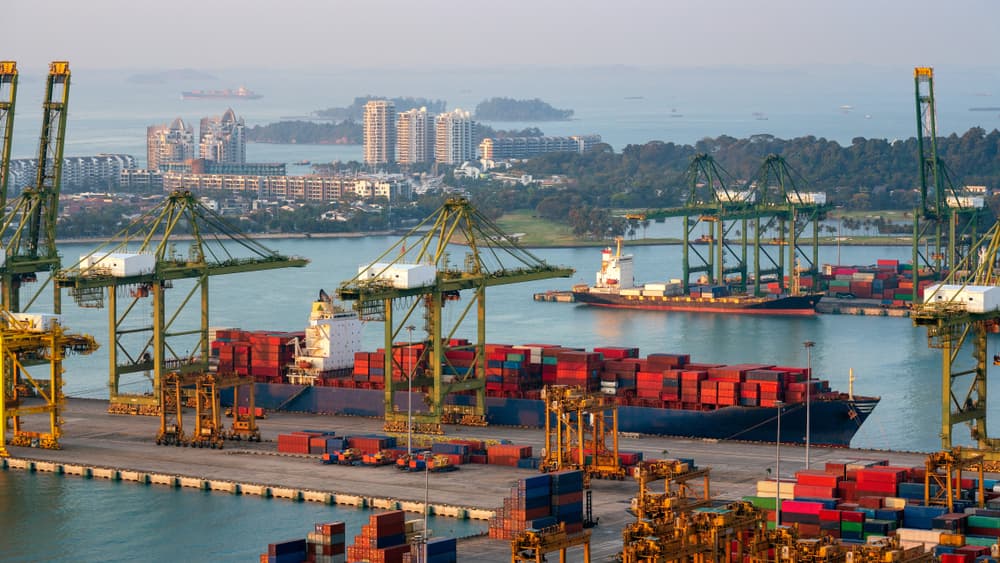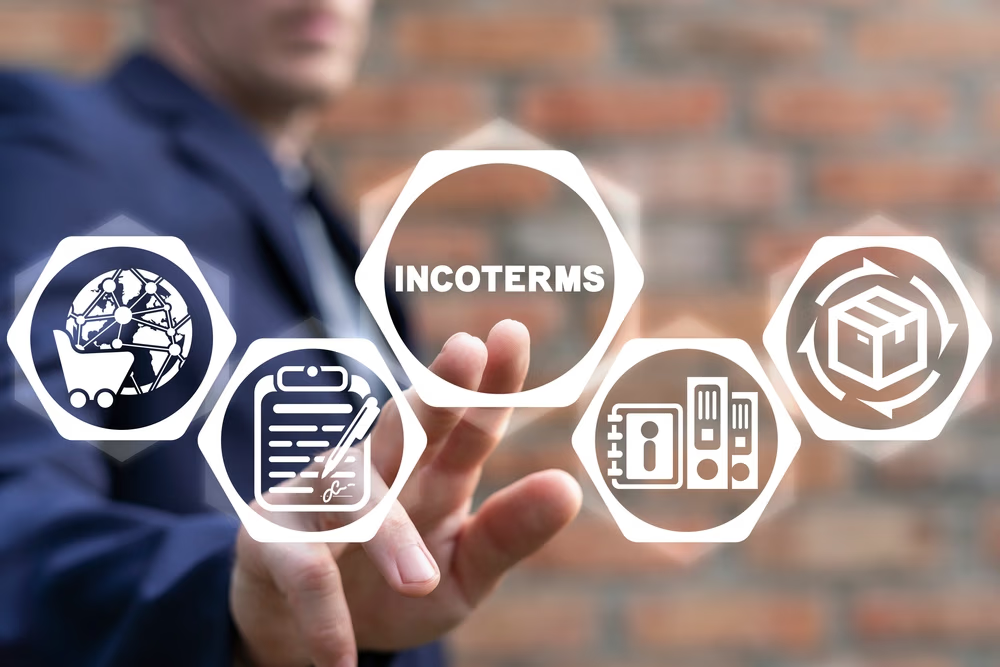In this guide, we’ll explain what incoterms are and examine some common examples you may encounter.
No matter what language you speak, money talks. When it comes to shipping and trading, you’ll need to learn incoterms if you want to be part of the conversation.
So, what are incoterms? Formally known as international commercial terms, incoterms are globally recognized definitions published by the International Chamber of Commerce (ICC). Incoterms aim to prevent confusion among international trading partners by ensuring clarity in shipping and trade contracts.
There are various incoterms that apply to all modes of transportation, but some are designed exclusively for shipments via water.
This guide will define the seven incoterms applicable to all transport modes and elaborate on sea and inland waterway transport-specific terms. Finally, we will examine the pros and cons of incoterms so you can leverage them to elevate your business operations at scale.
7 incoterms for any mode of transport
Each incoterm outlines a specific characteristic of the business relationship between two entities. Here are the seven incoterms that apply to any mode of transport:
1. CIP: Carriage and insurance paid to
Under CIP incoterms, the seller is responsible for delivering goods to the carrier and paying the necessary costs of carriage. The seller must also insure the goods against damage or loss during transport.
2. CPT: Carriage paid to
CPT incoterms are nearly identical to CIP incoterms. However, the seller is not required to obtain insurance on the cargo under these terms. Once they have paid for transport, they have fulfilled their obligation to the buyer.
3. DAP: Delivered at place
Under DAP incoterms, the seller is responsible for the goods before they are delivered to a specified location. Once delivered, the buyer assumes transport costs and responsibility for the goods.
4. DDP: Delivered duty paid
DDP incoterms are highly favorable for buyers, as the seller must assume all transportation costs and risks associated with the delivery of the product. Under DDP incoterms, sellers must clear goods for export and import, pay duties, and cover transportation costs.
5. DPU: Delivered at place unloaded
Like DAP incoterms, DPU incoterms require the seller to cover costs and assume liability up to the point of delivery — with one key difference. Under DPU incoterms, the seller is also responsible for the goods during unloading. The buyer assumes transportation costs and risks while transporting goods from the terminal to the final delivery destination.
6. EXW: Ex works
EXW incoterms shift nearly all liability and transport costs to the buyer. Under these terms, the seller must make the goods available for pickup at an agreed-upon location. The buyer assumes all other costs and risks.
7. FCA: Free carrier
FCA incoterms require the seller to deliver goods to the carrier or the buyer’s designee. The buyer assumes all costs and responsibilities once the goods are delivered to the specified entity.
List of incoterms for sea and inland waterway transport

The above incoterms apply to ground, sea, or air transport. However, the ICC has also created incoterms that only apply to sea and inland waterway transport. These terms include the following:
CFR: Cost and freight
Under cost and freight incoterms, sellers are responsible for delivering goods to a designated port, loading them on the appropriate vessel, and covering all associated costs.
CIF: Cost, insurance, and freight
CIF incoterms require the seller to deliver goods to port, load them on the designated vessel, cover transportation costs, and pay for insurance.
FAS: Free alongside ship
Under FAS incoterms, goods must be delivered to a specified port and placed next to a particular vessel. The buyer or their carrier transfers the goods onto the ship.
FOB: Free on board
FOB terms require the seller to deliver goods onto a specified vessel at the designated port of departure. Under FOB incoterms, the seller then assumes transportation costs and risks.
What incoterms do not cover
Incoterms address many aspects of a transaction, but they do not cover everything. Specifically, incoterms do not:
Specify which documents must be provided
Incoterms do not spell out the documents trade partners must exchange. Although documents, such as a bill of lading, are typically exchanged during a transaction, they are not required under incoterms.
Identify the goods being sold or the price of the products
Since each transaction is unique, incoterms cannot identify the goods being sold or their purchase price. The contract between the buyer and seller must address these terms.
To protect your organization from risk and ensure you receive transparent pricing information, submit a formal request for information (RFI) before buying. The seller will respond to your RFI by providing detailed pricing information and other relevant data about the goods.
Determine when the title transfers from seller to buyer
When procuring goods, ownership of the products (aka the title) typically transfers from the seller to the buyer when the purchasing party takes physical possession of them. At this time, the buyer is now responsible for the goods.
However, some sellers may attempt to transfer ownership as soon as they receive payment, meaning the buyer is now responsible for their condition. Incoterms do not lay out when ownership of the goods is transferred from one party to the next, meaning you must address this issue within your contract.
Pros and cons of incoterms

Incoterms’ global recognition makes them a valuable tool for shippers, manufacturers, and other parties participating in the supply chain. However, it's best to remain aware of the drawbacks associated with incoterms as well.
Here are the primary pros and cons of incoterms:
Pros of incoterms
Incoterms eliminate ambiguity from trade contracts, facilitating the negotiation of fair terms in international trading. Additionally, incoterms save money and time, as trade partners no longer have to spend resources on lawyers to draft detailed terms.
Incoterms are also useful because they are:
- Easily understood
- Updated and maintained by the ICC
- Internationally standardized
You can smooth communication between your organization and international trading partners by Integrating incoterms into your logistics strategy.
Cons of incoterms
Incoterms’ biggest downside is that each party may have different preferences regarding which terms to use. For instance, sellers may prefer CIF incoterms, whereas buyers might want to use FOB incoterms. These disagreements can lead to friction between trade partners, delaying deals. Certain terms may also expose one partner to increased costs.
Despite these potential issues, incoterms remain the best standardized tool for international shipping and trading.
Connect with Orderful Today
Incoterms promote better collaboration and communication across your distribution channel. To further remove friction from your communication channels to exchange data with your partners, you need robust, nimble technology. You need electronic data interchange.
Turn to Orderful, your organization's modern EDI solution for elevating agility and strengthening vendor relationships. To learn more about Orderful, contact us and speak to an expert today.
